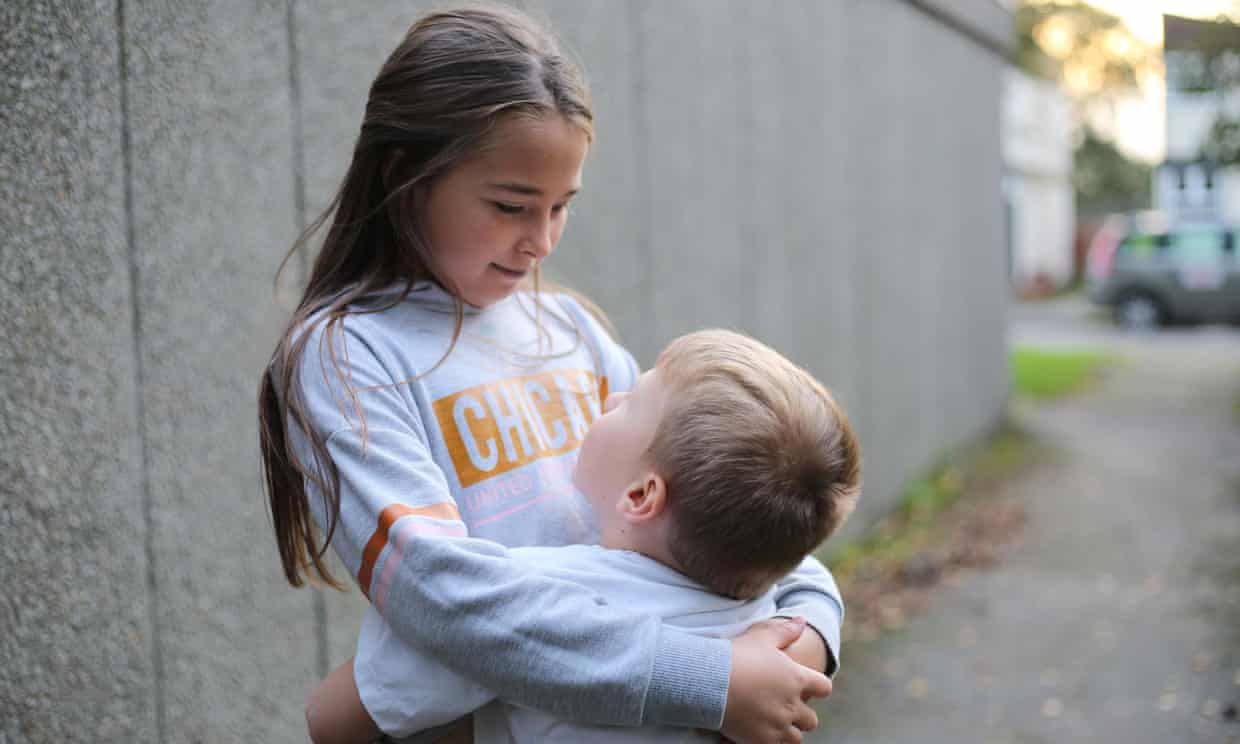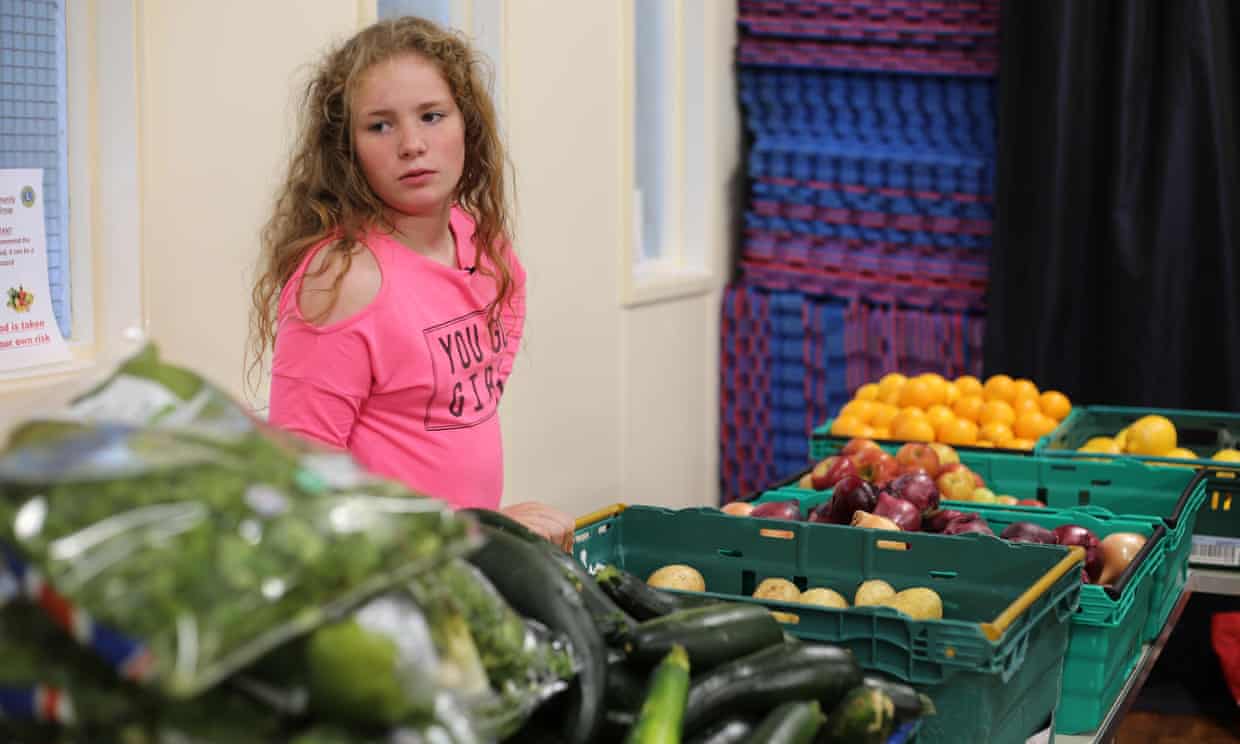
Opinion
Poverty blighted my childhood. I’m voting to help today’s cold and hungry kids
If Boris Johnson’s wins on Thursday, his government is predicted to impoverish hundreds of thousands more children
by Kerry HudsonLast Monday, during a Channel 4 Dispatches documentary on child poverty, the UK was introduced to three remarkable young people. We met eight-year-old Courtney and watched her counting down till her family’s next universal credit payment while worrying about whether her mum would get a present from Santa. Courtney’s family have been sleeping in coats and visiting food banks because of problems with their benefits.
We met Danielle, a 15-year-old from Sudbury who lives with her mum and sister in a cramped bedsit flat, still trying to study for her GCSEs though she’s struggling with self-harming issues and suicidal thoughts.
And finally, Rose, who lost her sister to cancer last year. Rose’s mum had to stop working to care for her sister and with the added funeral costs, the debts have mounted up. Rose’s mum does work but it’s a low-paid, low-hours job and the universal credit that tops up her wages simply isn’t enough; so the family still have to visit a food club, which distributes near-sell-by date food, once a week to feed themselves.
Marriage breakups, funeral costs, fleeing abuse, the price of these painful life experiences is being pushed into poverty for so many families in Britain today.
I don’t know Courtney, Danielle or Rose. But I feel like I do. Because I grew up in extreme poverty as a child, too. My childhood was a stream of council flats, temporary B&Bs and halfway houses for the homeless. It was knowing the ins and outs of the benefits system before I could do arithmetic and understanding that I should never, ever ask for anything else to eat because I could see it hurt my mum and I already knew the fridge was empty. It was school shoes held together by Blu-Tack and, in one B&B where the showers ran on a 20p meter, knowing we’d have to be dirty or have a cold wash in the sink because there were no more coins for the electric meter.
In my teens, my mum, my sister and I shared first a room in a B&B and then got an “upgrade” to a bedsit that was so damp, mushrooms grew from the bathroom carpet. I learned that anything we owned – cheap lamps from Argos, a bright-pink two-cassette tape player bought on credit from a catalogue – would eventually be sold in desperation for a few quid. That we’d hunt down the back of the sofa for coppers hoping we could afford a loaf of bread. I learned even bright, academic, ambitious kids will leave school without any GCSEs if they have no home in the truest sense, if they spend their time being a carer to a parent who desperately needs help themselves, if at every turn society is telling them, in the most practical, material terms, that they’re worth nothing at all.

The fact that I’m writing this shows how lucky I was. But luck is all it was. I met some people who helped me take up opportunities that got me out of the cycle of poverty. Without one of those arbitrary, chance meetings I don’t know where I would be now. Truly, I don’t know if I would be here at all. For me, one of the lucky ones, my childhood poverty has manifested in adulthood in extreme bouts of anxiety and depression that can incapacitate me for days or weeks. The effects of that early instability have seriously impacted my relationships and decimated my self-esteem, which in turn has affected my professional life.
For the unlucky ones, the majority who remain in poverty, the consequences are so much more damaging. A report by the Joseph Rowntree Foundation reveals that “children growing up in poor families emerge from our schools with substantially lower levels of educational attainment”. With poverty in adulthood, the likelihood of physical and mental illness, incarceration, homelessness, substance abuse and suicide are increased, while life expectancy is significantly decreased.
Nearly one in three children now live in poverty in the UK. If you can, I’m asking you to pause on that figure. More than four million children are growing up in poverty. I understand that after years of spiralling food bank use and teachers routinely talking about bringing in food for malnourished kids the numbers may have lost their impact. But I know what they mean. They mean being a small child frightened you’ll actually starve and that no one, not even your mum, will be able to stop that from happening. They mean believing you must be inherently bad because otherwise why is this happening to you and not your classmates?
Last week, analysis by the thinktank Resolution Foundation revealed a predicted rise in the number of children living in relative poverty under a Boris Johnson government, meaning child poverty in the UK could reach a record 60-year high under the Conservatives because their manifesto retains the coalition’s benefit cuts.
I often get asked: “What can we do?” The answer is simple. Don’t let Johnson, a man who is as far removed from the experience of poverty as a person can be, push our most vulnerable people into greater poverty. Vote for a party that cares whether or not kids, who have done nothing to deserve their fate, will face hunger and instability that will affect them for the rest of their lives. Vote for a party that invests in each and every kid, not just the affluent or lucky ones, reaching their full potential. Cast your vote for Courtney, Danielle and Rose. Vote for the kids who can’t ask for help but deserve it from each and every one of us.
• Kerry Hudson is the author of Tony Hogan Bought Me an Ice-Cream Float Before He Stole My Ma and Lowborn